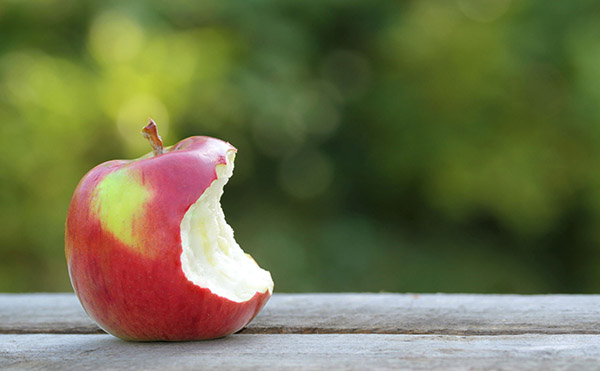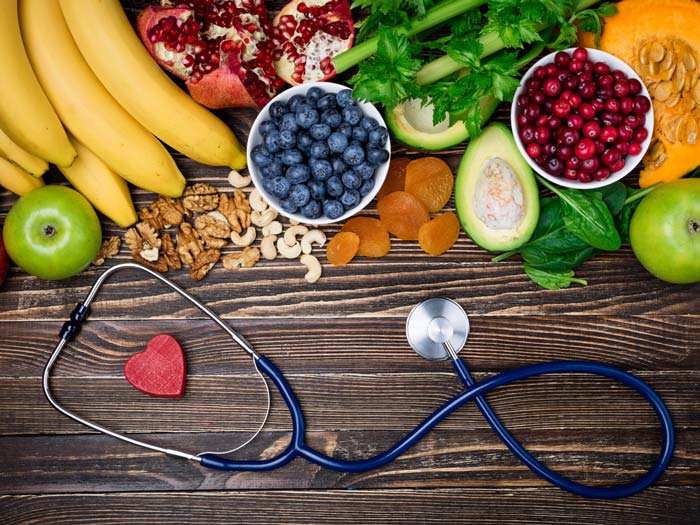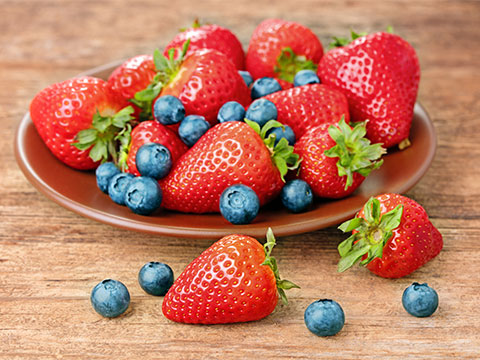Fruit Is Brain Food! Health Benefits for Memory and More
- By Lex Flamm
- Reading Time: 5 mins.
Erin Nella has a unique job at UC Davis Health. When a patient lands in the hospital with a brain injury, she tells them which foods they should eat to heal quickly—and fruit is always on the list.
Meet the Brain Food Expert
Nella is a senior neuroscience dietitian at UC Davis Health in Sacramento, California. She specializes in helping people recover from brain-related injuries and illnesses, like traumatic brain injuries, strokes, aneurysms, brain tumors, and brain surgery.

She works directly with the hospital’s neurologists and neurosurgeons to choose what patients will eat while they’re recovering. And she sat down with The FruitGuys to talk about why fruit is brain food and how we can all take advantage of it.
What Does Fruit Do To the Brain?
Imagine grabbing a shiny red apple from your office break room and taking it back to your desk for an afternoon snack. According to Nella, the fruit will start working on your brain before you even take a bite.

“Even the anticipation and excitement of eating fruit releases hormones in your brain,” she said. “… Then you bite in and taste sweetness or sourness, and that releases other ‘happy feeling’ hormones.”
The brain is also behind your impulses to chew and swallow. Then, it’s time for digestion. As your body breaks down the apple into its key components, like fiber, vitamins, minerals, antioxidants, and water, those components start to change your brain for the better.
Here are just a few things fruit does to your brain that improve your overall brain health.
Reduces Inflammation & Fights Oxidative Stress
Everyone’s brains experience inflammation and oxidative stress. Inflammation happens when your brain is in some kind of discomfort, whether from stress, lack of sleep, a flu bug, or even pollution in the air. Oxidative stress is even more common because it happens whenever our bodies take in oxygen. We need to breathe oxygen in to help break down the food we eat, but it also creates free radicals that damage our cells.
In his book Your Brain on Food, neuroscience and psychology professor Dr. Gary Wenk calls oxygen “the most deadly thing we expose ourselves to every day.” Luckily, eating fruits rich in antioxidants like vitamins C, A, and E can help combat that cell damage.

“Your brain is like a big ball of fat in your head, and it’s very prone to oxidative stress and inflammation,” Nella told The FruitGuys. “So having those foods rich in antioxidants helps manage those levels. [Eating fruit] helps reduce inflammation and helps reduce oxidative stress and the complications of it.”
Improves Cognitive Performance
Eating fruits—especially berries like blueberries, strawberries, and grapes—can increase our brain’s levels of brain-derived neurotrophic factor (BDNF). This is critical because BDNF contributes to neuroplasticity, helping build new connections in your brain.
“People who have higher levels of brain-derived neurotrophic factor are able to learn better, to study better, and to be more productive in their work,” Nella said.
A 2020 study of more than 5,700 adults over age 50 backs this up. Participants who ate more fruits and vegetables and exercised regularly remembered information better and spoke more fluently than their peers.

Want farm-fresh fruit?
We've got you covered.Staves Off Aging
That same 2020 study also found that “higher vegetable and fruit consumption and physical activity are protective against cognitive decline in older adults.” According to Nella, BDNF is as good for your brain as exercise is for your body.
“Exercise helps keep your body strong and keep it healthy. And eating fruits and getting more of this compound keeps your brain healthy and your brain strong when it inevitably incurs damage from general age-related wear and tear. These compounds help it rebound and not take that wear and tear as hard,” she said.

Reduces the Risk of Anxiety and Depression
In the last decade, researchers have uncovered a powerful connection between gut health and brain health. Your digestive system and the central nervous system are in constant communication via what experts call the “gut-brain axis” or GBA, and that connection can influence not only how you think but how you feel.
Nella said that using stool samples, scientists have found that certain patterns of bacteria and fungi in the gut correlate with mental health issues like anxiety and depression. People who eat more fruits and vegetables typically have healthier gut microbiomes and better mental health.
“Fruit interacts to change the microbiome to be one that’s more favorable and less susceptible to anxiety and depression,” Nella explained. This may be in part because fruit is a great source of dietary fiber, which keeps digestion running smoothly.
Improves Overall Wellbeing
Fruit contributes to overall well-being by reducing inflammation and oxidative stress, improving cognition, and protecting both mental and physical health.

“When you add extra fruit and extra veggies that provide these benefits, you’re well on your way to giving your body and your brain all the tools it needs to stay young and healthy and work well, not only from a cognitive standpoint but a mental and emotional wellbeing standpoint,” Nella said.
Want farm-fresh fruit?
We've got you covered.The Best Fruits for Brain Health
Fruit is brain food regardless of its type, but blueberries may be the best for boosting your memory and slowing aging. They’ve been proven to increase our brain’s levels of brain-derived neurotrophic factor (BDNF), and a small 2017 study found that eating blueberries daily improved cognitive performance.

Blueberries—and their berry relatives like strawberries and blackberries—are also a key part of the Mediterranean-DASH Intervention for Neurodegenerative Delay (MIND) diet, which was created by experts specifically for brain health.
Are Fruits Good for Memory?
Research into the mind diet has found a positive correlation between eating berries and resisting memory loss.
“The MIND diet has been studied especially in the last 5–10 years and has been found to reduce rates of Alzheimer’s and Dementia and ease cognitive delay as we get older. A lot of that comes down to some of the specific nutrients fruit provides,” Nella said, later adding, “One of our Alzheimer’s neurologists [at UC Davis] really, truly believes people don’t eat enough fruit. It’s the easiest thing to eat and take in more of as a way to help mitigate brain damage over time.”
Is Fruit the Ultimate Healthy Office Snack?
In terms of brain health, it just might be. Nella recommends eating fruit both before and during the workday to keep your mind sharp and your time productive.
“If you’re going into an interview or you’re working on a big project and you’re feeling stressed about it, go to sleep, wake up, exercise, eat a big bowl of fruit with your breakfast, and you’re going to be more equipped and better able to handle any challenge that comes your way,” she said.

Want farm-fresh fruit?
We've got you covered.To learn more about the physical health benefits of eating fresh fruit at work—including its perks for your heart health, blood sugar, and immune system—keep an eye out for our next deep dive, Your Body on Fruit, which is coming soon to The FruitGuys’ blog.


